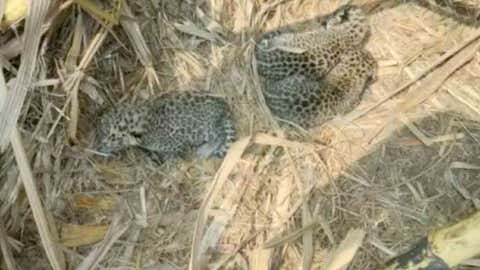Infection
Seven Leopard Cubs Die Of Highly Infectious Disease in Bengaluru Zoo

Representational image
(IANS)
While zoonotic diseases such as COVID-19 have been amassing notoriety for jumping species and infecting humans, the reverse seems to have occurred in Bengaluru Biological Park. Seven leopard cubs have been reported dead after contracting an infection, with zoo officials speculating that humans infected the cats.
The Feline Panleukopenia virus (FPV) is an extremely contagious disease, primarily affecting the intestines and immune systems of young felids. With a high mortality rate among young cubs, they transmit easily through aerosols and direct contact, with humans being a notable carrier.
Zoo management officials note that the first afflicted was a vaccinated female leopard cub rescued from Karnataka’s BRT tiger reserve. After the young cat suddenly fell ill around August 21, fluid treatment was regularly administered to help it recuperate. The leopard cub still succumbed to the illness the next day, prompting officials to impose strict biosecurity and isolation measures on the zoo.
Nevertheless, four other vaccinated leopard cubs began exhibiting clinical symptoms of disease the next day onwards. This continued on and off, infecting other cubs in the park, including one lion cub.
However, not all the cats made it; seven leopards in total had died. Officials added that this was the first time FPV had affected the cat family species in the zoo. Suspicion has fallen on the cub’s handlers for unknowingly passing it onto the young leopards, most of whom were aged around eight months old.
“All the leopards in the zoo, rescue centre, and safari area were booster immunised against the disease (i.e., all the animals were previously immunised against this disease annually) vaccinated. So the wild cats could have got it from a human, who is in contact with domestic cats. Humans are the carriers of this virus,” officials told media sources.
Young cats between 3-5 months of age remain more susceptible to severe illness. The disease can induce fever, depression, anorexia, severe vomiting and diarrhoea, often ending in death from severe dehydration, secondary bacterial infections and abnormal blood clotting.
**
For weather, science, space, and COVID-19 updates on the go, download The Weather Channel App (on Android and iOS store). It’s free!

